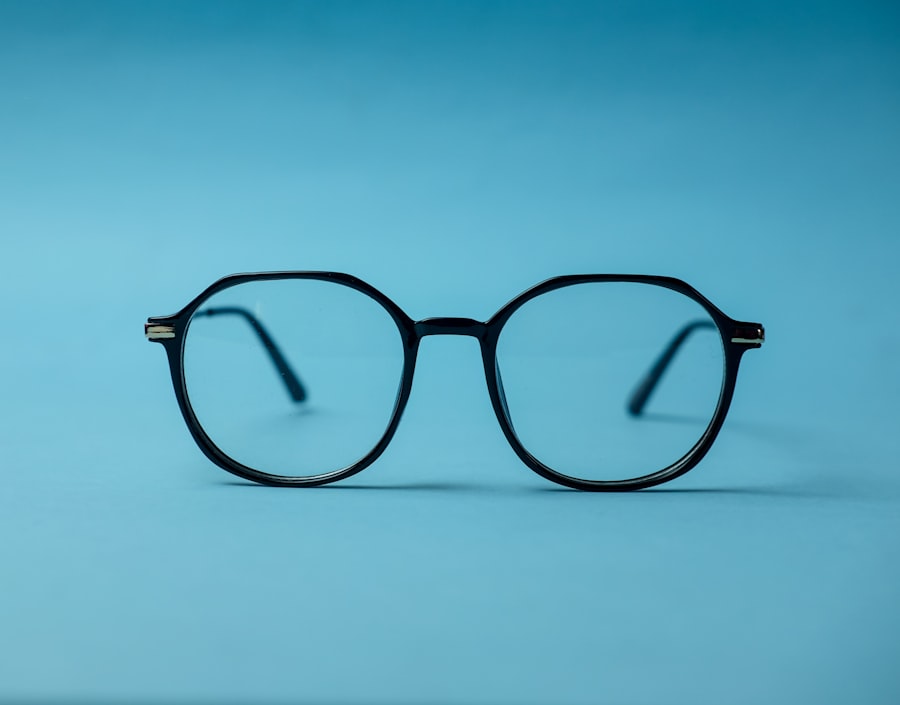In recent years, laser hair removal has emerged as a popular choice for individuals seeking a long-term solution to unwanted body hair. You may have heard about its effectiveness and convenience, but what exactly does this procedure entail?
This innovative technique utilizes concentrated beams of light to target hair follicles, ultimately leading to their destruction. As you consider this option, it’s essential to understand not only how it works but also the potential risks and safety precautions involved. The appeal of laser hair removal lies in its promise of smooth skin without the hassle of regular upkeep.
Many people find themselves drawn to the idea of spending less time on grooming routines and more time enjoying life. However, while the benefits are enticing, it’s crucial to approach this treatment with a well-informed mindset. Understanding the mechanics behind laser hair removal, as well as the associated risks, can help you make an educated decision about whether this procedure is right for you.
Key Takeaways
- Laser hair removal is a popular method for long-term hair reduction, but it comes with potential risks, especially when performed near the eyes.
- The process of laser hair removal involves targeting the hair follicles with concentrated light, which can cause damage to the eyes if not performed carefully.
- Potential risks of laser hair removal near the eyes include burns, corneal damage, and vision impairment.
- It is important to protect the eyes during laser hair removal by wearing appropriate eye protection and ensuring that the treatment is performed by a qualified and experienced professional.
- Signs of eye damage from laser hair removal may include redness, swelling, pain, and changes in vision, and it is important to seek immediate medical attention if any of these symptoms occur.
How Laser Hair Removal Works
At its core, laser hair removal operates on a straightforward principle: the absorption of light by pigment. When you undergo this treatment, a specialized laser emits a concentrated beam of light that is absorbed by the melanin in your hair follicles. This process generates heat, which effectively damages the follicle and inhibits future hair growth.
The procedure is most effective on individuals with light skin and dark hair, as the contrast allows the laser to target the follicles more efficiently. During your session, you may experience a sensation similar to that of a rubber band snapping against your skin. While some discomfort is normal, many clinics offer cooling devices or topical anesthetics to minimize any pain.
The number of sessions required varies depending on factors such as hair thickness, color, and the area being treated. Typically, multiple treatments are necessary to achieve optimal results, as hair grows in cycles and not all follicles are active at the same time. As you embark on this journey, patience and consistency will be key to achieving the smooth skin you desire.
Potential Risks of Laser Hair Removal

While laser hair removal is generally considered safe, it is not without its risks. As with any medical procedure, there are potential side effects that you should be aware of before proceeding. Common side effects include redness, swelling, and mild discomfort in the treated area.
These symptoms usually subside within a few hours to a few days. However, more severe reactions can occur in some individuals, such as blistering or changes in skin pigmentation. It’s essential to consult with a qualified practitioner who can assess your skin type and determine if you are a suitable candidate for the procedure.
Another risk associated with laser hair removal is the possibility of eye injury. The intense light emitted by the laser can be harmful if it comes into contact with your eyes. This concern is particularly relevant for treatments performed near the facial area, where your eyes are in close proximity to the treatment zone.
Understanding these risks will empower you to take necessary precautions and make informed decisions about your treatment options.
Can Laser Hair Removal Affect Your Eyes?
| Question | Answer |
|---|---|
| Can laser hair removal affect your eyes? | Yes, if proper eye protection is not used during the procedure, the laser light can potentially harm the eyes. |
| How to protect the eyes during laser hair removal? | Special goggles or eye shields should be worn to protect the eyes from the laser light. |
| What are the potential risks to the eyes? | Potential risks include damage to the cornea, retina, or other parts of the eye, leading to vision problems. |
| Is it safe to get laser hair removal near the eyes? | Laser hair removal near the eyes should only be performed by a trained professional with proper eye protection in place. |
The question of whether laser hair removal can affect your eyes is a valid concern for anyone considering this procedure.
The lasers used in hair removal emit powerful beams of light that can cause harm to the delicate structures of your eyes if they are exposed directly.
This risk is particularly pronounced when treatments are performed on areas close to the face, such as the upper lip or eyebrows. To mitigate this risk, practitioners typically employ protective eyewear for both clients and themselves during the procedure. These goggles are designed to shield your eyes from the intense light emitted by the laser, ensuring that you remain safe throughout the treatment process.
It’s crucial to communicate any concerns you may have about eye safety with your practitioner before beginning your sessions. By being proactive and informed, you can significantly reduce the likelihood of experiencing any adverse effects related to your vision.
Safety Precautions for Laser Hair Removal Near the Eyes
When considering laser hair removal in areas close to your eyes, it’s essential to prioritize safety precautions. First and foremost, ensure that you choose a reputable clinic with experienced practitioners who are well-versed in laser technology and its applications. A qualified professional will conduct a thorough consultation to assess your skin type and discuss any potential risks associated with your specific treatment plan.
In addition to selecting a skilled practitioner, wearing protective eyewear during the procedure is non-negotiable. These goggles should fit securely and provide adequate coverage to shield your eyes from any stray beams of light. Your practitioner should also take extra care when operating the laser near sensitive areas, ensuring that they maintain a safe distance from your eyes while still effectively targeting unwanted hair.
By adhering to these safety measures, you can enjoy the benefits of laser hair removal while minimizing any potential risks.
Signs of Eye Damage from Laser Hair Removal

While rare, it’s important to be aware of the signs of eye damage that may arise from improper laser hair removal procedures. If you experience any sudden changes in vision following treatment—such as blurriness, double vision, or difficulty focusing—it’s crucial to seek medical attention immediately. Other symptoms may include persistent pain or discomfort in or around your eyes, excessive tearing, or sensitivity to light.
In some cases, individuals may not notice immediate symptoms but could experience long-term effects from exposure to laser light. These effects may manifest as chronic discomfort or visual disturbances that can impact daily life. If you suspect that you have sustained eye damage due to laser hair removal, do not hesitate to consult an eye care professional for a comprehensive evaluation and appropriate treatment options.
Seeking Medical Attention for Eye Damage
If you suspect that you have experienced eye damage as a result of laser hair removal, seeking medical attention should be your top priority. Early intervention can significantly improve outcomes and prevent further complications. When visiting an eye care professional, be prepared to provide detailed information about your treatment history and any symptoms you have been experiencing.
Your doctor may perform a series of tests to assess your vision and determine the extent of any damage. Depending on their findings, they may recommend various treatment options ranging from medication to manage discomfort to more advanced interventions if necessary. Remember that timely action is crucial; addressing any concerns promptly can help safeguard your vision and overall eye health.
Conclusion and Recommendations for Laser Hair Removal Safety
In conclusion, while laser hair removal offers an effective solution for unwanted hair, it is essential to approach this treatment with caution and awareness of potential risks—especially concerning eye safety. By understanding how the procedure works and taking necessary precautions, you can enjoy its benefits while minimizing any adverse effects. As you consider undergoing laser hair removal, prioritize finding a qualified practitioner who adheres to safety protocols and uses appropriate protective measures during treatment.
Always communicate openly about any concerns you may have regarding eye safety or other aspects of the procedure. By being proactive and informed, you can make educated decisions that align with your personal goals for smooth skin while ensuring your overall well-being remains intact. Ultimately, laser hair removal can be a transformative experience when approached responsibly.
With proper care and attention to safety measures, you can achieve lasting results while keeping your eyes protected throughout the process.
There is a related article discussing the benefits of laser hair removal for fashion and beauty enthusiasts. To learn more about how laser hair removal can enhance your overall look, check out this article.
FAQs
What is laser hair removal?
Laser hair removal is a cosmetic procedure that uses a concentrated beam of light (laser) to remove unwanted hair. The laser targets the pigment in the hair follicles, damaging them and inhibiting future hair growth.
Can laser hair removal affect the eyes?
Yes, laser hair removal can affect the eyes if proper safety precautions are not taken. The intense light from the laser can potentially cause damage to the eyes if they are not adequately protected during the procedure.
How can the eyes be protected during laser hair removal?
To protect the eyes during laser hair removal, both the patient and the practitioner should wear appropriate eye protection. This typically involves wearing special goggles that are designed to shield the eyes from the laser light.
What are the potential risks to the eyes during laser hair removal?
The potential risks to the eyes during laser hair removal include damage to the cornea, retina, or other parts of the eye from exposure to the intense laser light. This can result in vision problems or even permanent eye damage if proper precautions are not taken.
Are there any specific eye conditions that may increase the risk of complications from laser hair removal?
Yes, individuals with certain eye conditions, such as retinal disorders or a history of eye surgery, may be at an increased risk of complications from laser hair removal. It is important to discuss any pre-existing eye conditions with the practitioner before undergoing the procedure.




